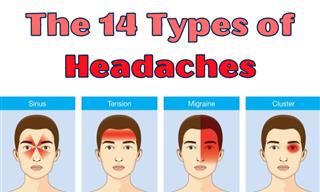1. Get clarity on confusing medication directions.
Many questions can arise after reading dosage instructions in a drug bottle. Does “take six times daily" mean taking a single dose every four hours or only while you are awake? If you don’t know, make sure to ask!
2. Ask your pharmacist how to best measure liquid drugs.
If you’ve been given a liquid drug to manage your neck or back pain, ask your pharmacist for the best measuring device for it. Using a marked syringe, for example, is usually a more accurate option than a regular spoon.

3. Get written information about your medication’s side effects.
It is essential to be aware of when your drug is doing you more harm than good. Get hold of a list of all the possible side effects printed from your pharmacist, along with any details about what you need to do if they occur.
4. Consider pharmacy home delivery or mail service.
If getting to the pharmacy is difficult, you run the risk of not properly adhering to your medication. Why not find a pharmacy that can deliver your drugs to your door or mail them to you?

5. Tell your doctor about the drugs you take and bring them to your visits.
All health professionals you visit should know about the drugs you’re taking, including prescriptions, herbs, over-the-counter medications, supplements, and vitamins. If you have an extensive medication regimen, it's probably best to bring them along with you to any appointments.
6. Get to know your pharmacist.
Your pharmacist is a primary member of your health care team and must also be aware of every drug you take. They will keep this information on file to help protect you against potentially fatal drug interactions.

7. Alert your doctor and pharmacist to medication allergies or negative reactions.
Even if it was a seemingly mild reaction to a drug, make sure to inform your doctor and pharmacist about it. They will then update the pharmacy’s records to provide an additional layer of protection against sending you home with a potentially harmful drug.
8. Speak up if your doctor’s handwriting is illegible.
Don’t shy away from asking your doctor to rewrite a prescription if it is illegible. If you can't read it, then the chances are that your pharmacist will struggle to read it, too.

9. Clarify questions about refills with your doctor.
When you receive a prescription, ensure that you are aware of how many refills you’re getting and that your doctor has provided enough to cover your return. It is important to be aware of the fact that prescriptions and refills are only valid for a year.
10. Ask your doctor and pharmacist to describe details of your medicines in simple English.
Talking to both your doctor and pharmacist will make you extra clear on the ins and outs of your drugs. Important questions to ask include:
1. What exactly is the drug for?
2. How should I store it?
3. How should I take the drug and for how long?
4. What side effects may arise?
5. Do I need to avoid any food, drink, or activities while taking this medicine?
 Go to BabaMail
Go to BabaMail




























